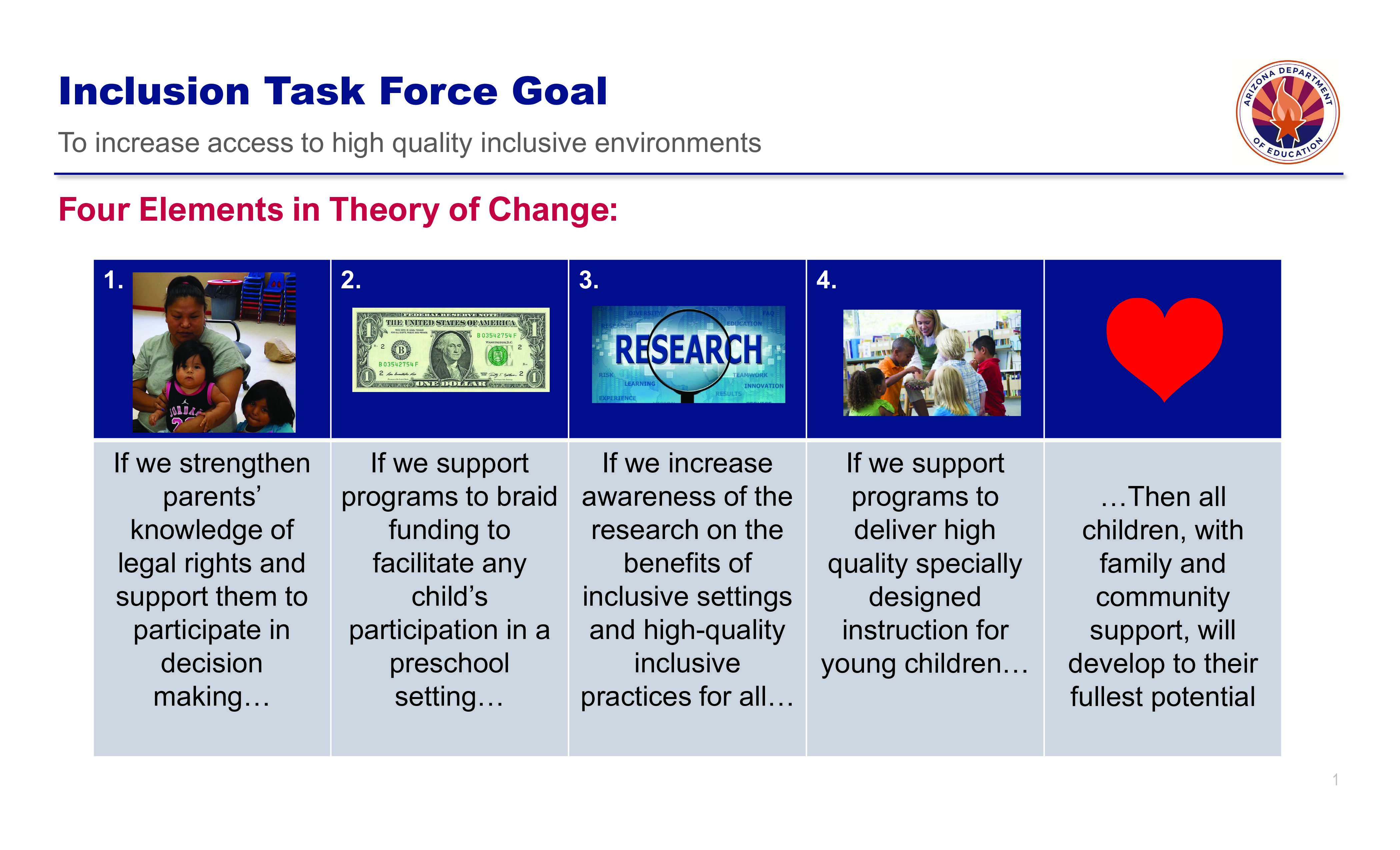Early Childhood Inclusion Task Force
The Inclusion Task Force is made up of school leaders, parents of children with disabilities and state agency personnel, with representation from institutes of higher education, coaches, and trainers in inclusion. The members are committed to advancing the opportunities of children with disabilities to participate in quality inclusive learning environments--environments that are able to meet the needs of all preschool aged children. Most of the members have participated for multiple years, providing guidance and feedback, resources and ideas designed to reduce barriers and increase access to inclusive settings. We are grateful for all those who have contributed to the effort through their involvement over the years.
The Inclusion Task Force members shared the most frequent barriers they experienced--those most often preventing the offer of an inclusive preschool setting. The issues cited were confirmed through survey data, reseach, and described through personal and professional experiences. The many barriers were organized into four main categories: funding, access to non-disabled peers, lack of familiarity with research, and challenges delivering instruction to children with disabilities. These barriers were translated into action committments and today represent our Theory of Change. They reflect the committments of the group to develop aligned, supportive systems and resources. We expect to offer a pathway to new practices in each of these areas by sharing resources, the development of new trainings, coaching through communities of practice, and by the support of parents and families and administrators of programs.
Over the past five years the Task Force members have provided supportive feedback on a variety of professional development and technical assistance initiatives. Learning activities offered by the Early Childood Special Education Unit included sharing research based practices and technical assistance through presentations at state and local conferences and professional development events. Many local school districts have participated and have made concerted efforts to adopt new practices. Training on High Quality Inclusion, Least Restrictive Environment, Embedded Learning Opportunities, the Itinerant Early Childhood Special Education Model, and the Inclusive Classroom Profile were provided over the years in an effort to support schools to transition from existing separate programs and develop new programs that offered regular early childhood environments, in which more than 50% of the children in a classroom are non-disabled.
The progress of the state is evident, as reflected by the Preschool Environments chart that shows the percent of preschool aged children attending regular early childhood settings, special education settings, or receiving services in the home. There has been a reduction in the percent of children who attend preschool programs in separate settings. There is an increase in the percentage of children attending regular early childhood settings. We are currently meeting state targets for increasing participation in inclusive settings and decreasing participation in separate settings.
The members discussed the barriers to offering settings in which preschool aged children with disabilities would participate with their typically developing peers. Through discovery activites and using Technology of Participation (TOP) tools, four themes emerged. If programs were able ensure that the first consideration for a child's placement would be the program they had been attending prior to eligibility, supported by parents, with funding, and high quality instruction, that would be optimal, and meet the intent of the IDEA as described in the Preschool Dear Colleague Letter on Inclusion. The Task Force members spent the next two years developing a theoretical way over, around and through the barriers that were identified, and have organized the information into four recommended practices. Each practice is profiled below.









